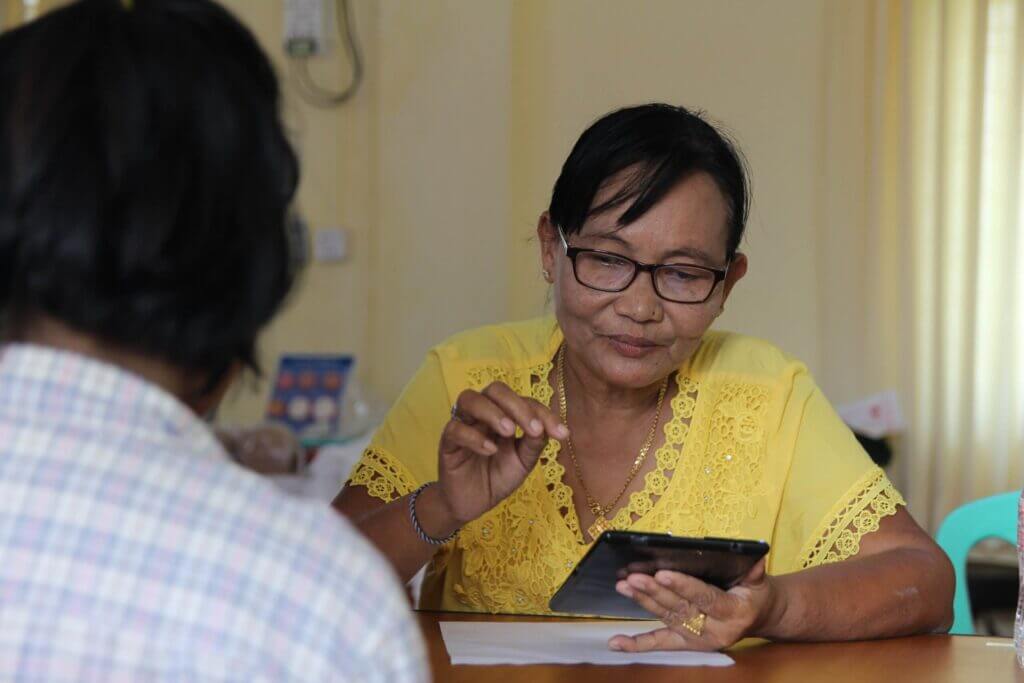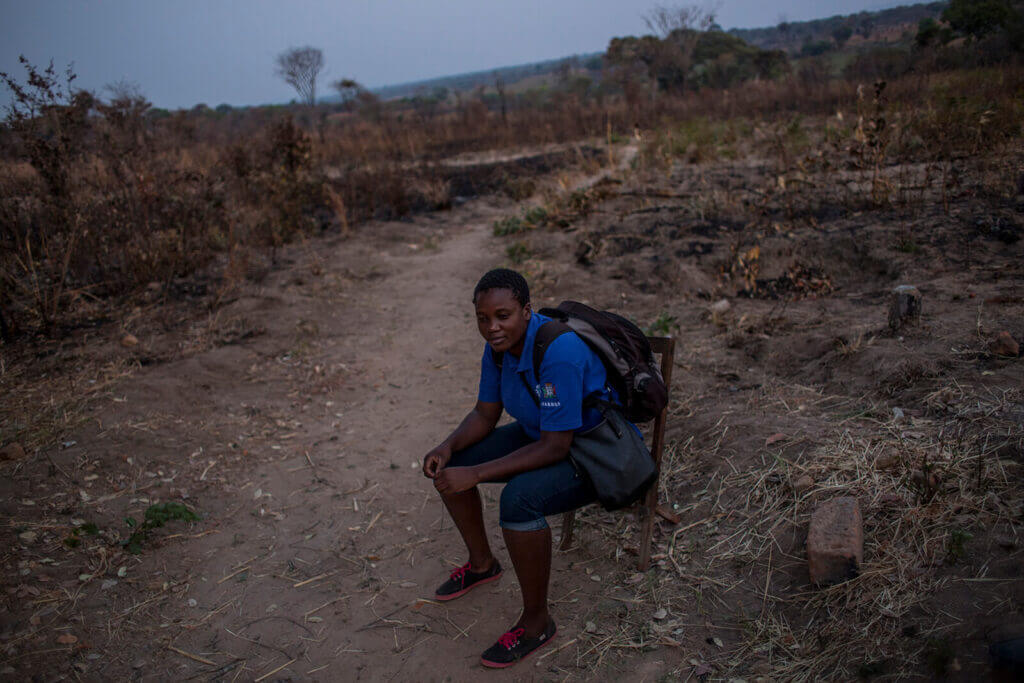Can innovations in mobile technology help us improve reproductive healthcare and reach more women with services? Over the past five years, MSI has been trying to find out—with exciting results.
MSI developed two mobile apps: Client.Collect and Community.Connect. Each app can be customized for the country program with options to add or subtract features and change language. We’ve tested these apps in countries around the world, and we’re starting to see how they can be used to improve clinical quality for the women we serve.

Before a client ever arrives at an MSI service point, there’s a good chance she’s talked to a community-based mobilizer (CBM). Ahead of planned outreach visits, CBMs work to raise awareness about reproductive healthcare and refer women to the services they need. But easily-lost paper referral cards made it hard to track their activities and see what worked best.
We created Community.Connect to give CBMs mobile digital tools to speak with clients in an accessible, engaging way, track their activities and people they’ve reached, and make referrals. The app has been a hit, including in some ways we didn’t expect.
One popular feature has been a collection of animated videos about pregnancy, different contraceptive methods, and other health topics. The videos are trusted by clients, sometimes more than hearing the same information from a person. Because we can track which videos are most watched, we can see what topics clients are most interested in. And mobilizers get constant refresher trainings as they watch the videos, too!
Beyond the upfront investment of devices, the app is cheap to run, while providing valuable insights into mobilizers’ work and results. Long-term, it’s a cost-effective way to support CBMs.
One CBM noted that the videos are demystifying reproductive health and reducing stigma. “Already when we did the trial phase, women no longer do family planning discreetly because their husbands now understand.”
From 2020 to 2022, we tested Community.Connect in the Sahel region, reaching 666,000 people, 26% of whom were adolescents. While CBMs required training to learn how to use a touchscreen device, the success of the pilot showed that these tools can work even in the most challenging settings. Now, we’re working to expand them to other country programs, including partnering with governments to support public health efforts.

Imagine you’re a healthcare provider trekking long distances through the mountains of Nepal or driving to the farthest corners of Madagascar’s natural parks. Working alone in remote areas, you might not have access to a computer, and you certainly don’t want to add a heavy logbook to your gear, but you need an easy way to collect and store client data that’s as secure as it is convenient.
That was the challenge facing many of our MSI Ladies and outreach providers. Our solution was Client.Collect: A mobile app that enables providers to capture essential client and services data in real time. The app is designed to prevent errors in data entry, saving providers time spent correcting mistakes.
So far, the app has 860 users across 14 countries and has consistently been found to improve data quality and security. Early reports suggest that the app can also help improve clinical quality. Feedback from one country showed that it helped providers deliver better counseling and engage more with clients, because they didn’t have to spend time hand-writing clinical notes. Another country program added a module to document the results of follow-up calls or visits. This enabled the support office to identify trends arising in follow-up and use that information to support providers to improve quality of care.
For healthcare providers working in all kinds of circumstances – from clients’ homes to remote health outposts – this innovative app makes their jobs a little easier. With new tools and better data, they can focus on providing high-quality care.
Can mobile technology help us improve our services for our clients? Community.Connect and Client.Collect show that the answer is yes!
For individual providers and community-based mobilizers, the convenience, security and tools to improve client engagement helped them do their jobs more effectively. But the apps made a difference for support office staff too. With quality data readily available, they can make better decisions about where to send providers and what activities to prioritize.
Through this project, we’ve been able to create context-specific mobile tools. We can use these tools for all sorts of purposes, from collecting data for a specific research project to instituting text-message-based reporting for providers. In Nigeria, a brand-new custom add-on allowed providers to go paperless—and they said that it improved the quality of their counselling.
We’ll continue testing and piloting innovative new app ideas to help us reach more women and provide a better experience for the women we serve.